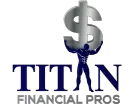401k Retirement Plans: Explained
401k retirement plans are special types of accounts, financed through pre-tax payroll deductions. The funds in your account are invested in various ways. Your funds can be invested through any number of stocks, mutual funds, and other ways, and it is not taxed on any capital gains or interest until the money is pulled out or withdrawn. Congress approved this retirement savings plan in 1981, and its name was rooted from the section of the Internal Revenue Code that contains it, which is obviously, section 401k. One great advantage of this retirement plan is that the tax treatment is complimentary. Moreover, capital gains, interest and dividends are not levied until they are pulled out or withdrawn.
In terms of its investment customization and flexibility, 401k retirement plans offer employees and workers an extensive array of options and preferences as to how their property and assets are invested through time. Moreover, many businesses and companies permit employees to obtain company stock for their 401k retirement plan at a cut rate. However, many pecuniary consultants and counselors are not in favor of holding a significant percentage of your 401k plan in the shares of your boss or manager.
So what are 401k plans? If you are like most people, you probably have questions about your 401k retirement plan. You may be wondering how a 401k actually takes place, precisely what a 401k retirement plan is, or how you can be capable of stimulating the diminishing balance in your 401k plan. So how does a 401k plan actually work? If your company offers a 401k retirement plan, you can agree to join. You can also have the selection option of choosing the amount of funds you wish to put in from an inventory of funds presented in the 401k plan. Your payment will routinely be deducted from your pay check before taxes.
Every worker can invest up to a defined proportion of his wage into a 401k plan. Your involvement, along with any coordinated contributions from your employer, are then endowed into your chosen funds. These funds will produce interest before being taxed, and can be withdrawn when you reach 60 years of age. At this point in time, you must pay the income tax on the withdrawn funds. Furthermore, there are methods and means wherein you can pull out your funds before age 60. However, these early withdrawals frequently call for a penalty in conjunction with the payment of taxes.
A 401k retirement plan is an employer-subsidized retirement plan, and it is categorized into two groups: defined benefit and defined contribution. With this defined benefit plan, the employer pledges to give a distinct sum to those who want to retire and those who meet specified eligibility standards and measures.
These are just a few facts about 401K retirement plans that you might not have been aware of. Hopefully you found these helpful. If you would like to learn even more about how you can increase the bottom line of your own business, then you are more than welcome to contact us and we will take a look at your unique situation and offer some sensible solutions that would work best for you!
“TITAN Financial Pros provide an informational service only and are not responsible for any investments made applying this information. The results described are not distinctive and are not guarantees of future income. Any assumption contains risk and is 100% the responsibility of the individual to assess the risks/rewards involved. We bear no liability assumed or implied for your application of the information shared from this content. This information is for educational and entertainment purposes only.”
Is your business losing money?
Click the button below to get our FREE report on the 5 Most Common Ways Businesses Lose Money and more importantly,
HOW YOU CAN FIX THEM!



